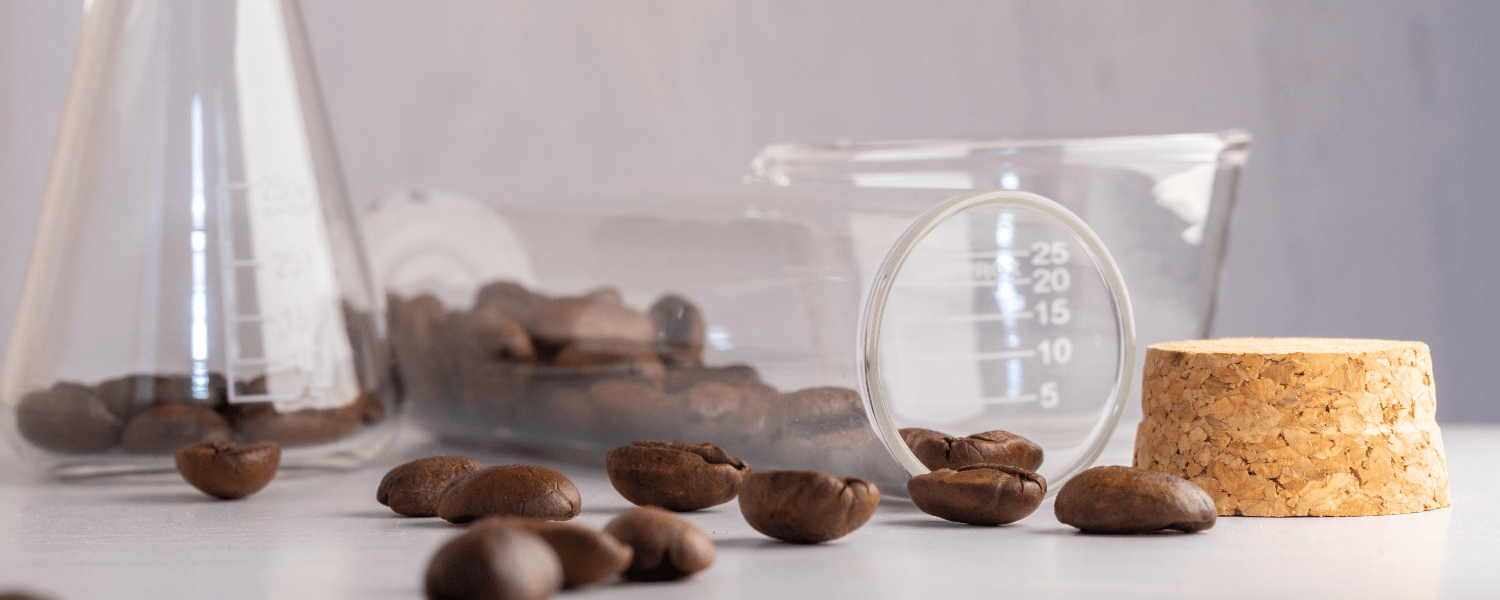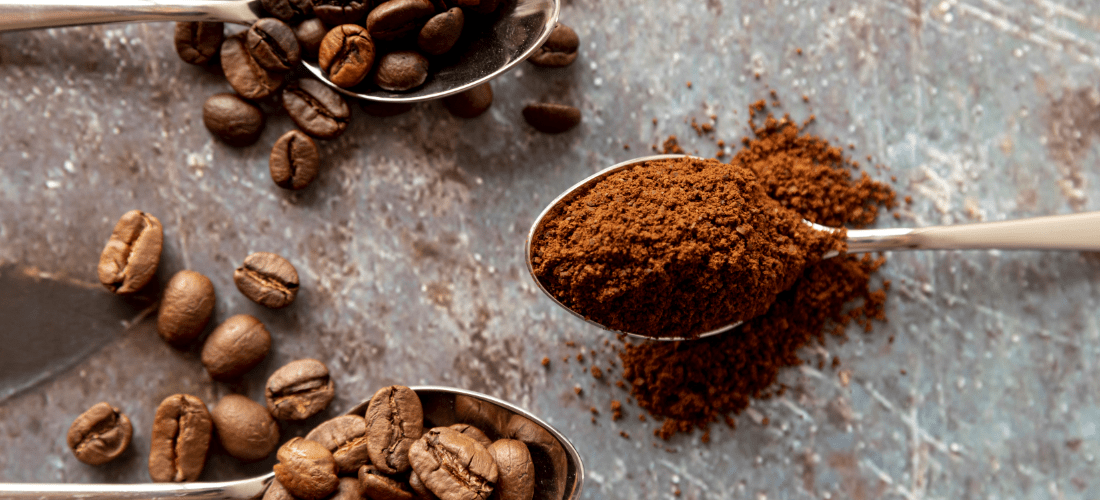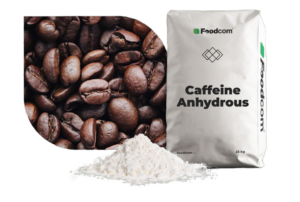In the world of supplements and health-enhancing products, anhydrous caffeine has enjoyed unflagging popularity. It’s a concentrated, purified form of natural caffeine, devoid of crystal water, so it works faster, stronger and more precisely. Compared to classic coffee or energy drinks, its action is more predictable and its use is wider. What is it, how does it work and taste, and what can it be used for?
What is caffeine anhydrous?
Anhydrous ca ffeine is a form of caffeine from which water has been removed through a dehydration process. It is extracted from natural sources – most often from coffee beans, tea leaves or guarana seeds. The extraction and purification process involves separating the pure chemical compound (1,3,7-trimethylxanthine) from the rest of the plant constituents, and then drying it into a fine, white powder.
This is how anhydrous caffeine powder is created. It is a highly concentrated, easily soluble raw material that has become a staple ingredient in dietary supplements, energy drinks and sports products due to its stability and precise dosage.
How does anhydrous caffeine work on the body?
The mechanism of action of caffeine is well understood. The substance blocks adenosine receptors in the brain, which reduces feelings of fatigue and drowsiness, while stimulating the nervous system. The effect is increased alertness, better focus and higher energy levels.
With anhydrous caffeine, the effect is faster than with coffee, due to its purity and concentration. The body does not need to process additional ingredients contained in the drink – the compound goes directly into the bloodstream, and its effect appears after just 15-30 minutes.
Regular, moderate consumption of caffeine:
- improves concentration and reaction time,
- enhances learning and memory processes,
- increases endurance during exercise,
- stimulates thermogenesis and can support fat reduction,
- has a slightly diuretic effect, speeding up kidney filtration.
However, the effect of caffeine depends on the dose, body weight and individual sensitivity of the body.
What does anhydrous caffeine taste like?
People who have tried anhydrous caffeine powder often remark on the intense, bitter taste. In its pure form, it is not pleasant to consume, so in finished products – tablets, capsules or drinks – it is usually neutralized by flavorings or casings.
The taste, however, is characteristic and a feature typical of pure plant alkaloids. In practice, it does not affect efficacy, but can be noticeable when making caffeine mixtures on their own.
How is anhydrous caffeine obtained?
The process of producing caffeine anhydrous is a multi-step process and requires precise technology.
- Extraction – caffeine is extracted from natural raw materials, such as coffee beans or tea leaves, using solvents or water.
- Purification – the crude extract undergoes filtration and separation to obtain a pure chemical compound.
- Drying and dehydration – water is removed, resulting in the substance in anhydrous form.
- Micronization – particles are crushed to form a very fine powder with high solubility.
The result is a light, white powder with high chemical stability and purity exceeding 99%.
How to use and what to use caffeine anhydrous for?
Caffeine anhydrous is widely used in manufacturing:
- supplements for athletes – as an ingredient in pre-workouts, energy boosters and fat burners,
- energy and isotonic drinks,
- stimulant tablets and capsules,
- pharmaceutical products – such as painkillers, in which caffeine enhances the action of active substances,
- concentration and alertness aids – used by students, drivers and shift workers.
Recommended dosages range from 100 to 200 mg per day, depending on the purpose of use. For athletes, the maximum daily amount can be up to 400 mg, but it is important to remember that excess caffeine can cause anxiety, irritability or sleep problems.
Physicochemical properties and practical advantages
Caffeine anhydrous is characterized by:
- excellent solubility in water,
- long shelf life,
- stability at different temperatures and storage conditions,
- ease of dosing and mixing with other ingredients.
These properties make it an ideal raw material for supplements, beverages or pharmaceuticals. It contains no unnecessary additives and retains its full potency regardless of the form of administration.
Compared to classic coffee, caffeine anhydrous provides greater control over dosage and speed of action. This is especially important in the sports industry, where precision is of paramount importance to the safety and effectiveness of supplementation.
Caffeine vs. other active ingredients
In products designed for athletes, caffeine anhydrous is often accompanied by ingredients such as amino acids, B vitamins or plant extracts. In this way, its effect is more comprehensive – caffeine stimulates, while amino acids support recovery and maintain energy for longer. Such synergistic combinations are often found in pre-workout formulas and supplements for physically active people.
The FDCM.eu platform supplies raw materials for the food, pharmaceutical and cosmetic industries, including high-quality caffeine anhydrous powder. The raw material is available in bulk batches and is characterized by high purity and reproducibility of physicochemical parameters.
Energy in pure form
Caffeine anhydrous is one of the most effective and purest natural stimulants. Due to its concentration, rapid action and wide application, it has become an integral component of modern supplements and energy products.
Its action is not limited to stimulation – it supports concentration, performance and motivation, while allowing precise dosage. Whether used in sports, science or work, caffeine anhydrous powder remains one of the most versatile and effective ways to naturally stimulate the body.







